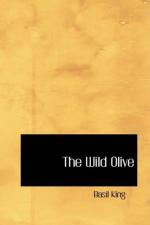Part IV
Conquest
XX
Among the three or four qualities Conquest most approved of in himself, not the least was a certain capacity for the patient acquisition of the world’s more enviable properties. He had the gift of knowing what he wanted, recognizing it when he saw it, and waiting for it till it came within his reach. From his youth upward he had been a connoisseur of quality rather than a lover of abundance, while he owned to a talent for seeing the value of things which other people overlooked, and throwing them into relief when the objects became his. As far back as the time when the modest paternal heritage had been divided between his brothers and sisters and himself, he had been astute enough to leave the bulk of it to them, contenting himself with one or two bits of ancestral furniture and a few old books, which were now known by all to have been the only things worth having. Throughout his life he had followed this principle of acquiring unobtrusively but getting exactly what he wanted. It was so that he bought his first horse, so that he bought his first motor, so that he purchased the land where he afterward built his house—in a distant, desolate stretch of Fifth Avenue which his acquaintances told him would be hopelessly out of reach, but where, not many years after, most of them were too late to join him.
In building his house, too, he took his time, allowing his friends to make their experiments around him, while he studied the great art of “how not to do it.” One of his neighbors erected a Flemish chActeau, another a Florentine palazzo, and a third a FranASec.ois Premier hA’tel; but his plot of ground remained an unkempt tangle of mullein and blue succory. In the end he put up a sober, handsome development on a style which the humbler passers-by often called, with approval, “good, plain American,” but whose point of departure was Georgian. He had the instinct for that which springs out of the soil. For this reason he did not shrink from an Early Victorian note—the first note of the modern, prosperous New York—in decoration; and the same taste impelled him toward the American in art. While Neighbor Smith displayed his Gainsboroughs, and Neighbor Jones his Rousseaus or Daubignys, Conquest quietly picked up a thing here and there—always under excellent advice—which no picture-dealer had been able to dispose of, because it came from some studio in Twenty-third Street. Hung on his walls, it produced that much-sought-for effect of “having been always there.” He was not a Chauvinist, nor had he any sympathy with the intolerantly patriotic. He was merely a lover of the indigenous.




